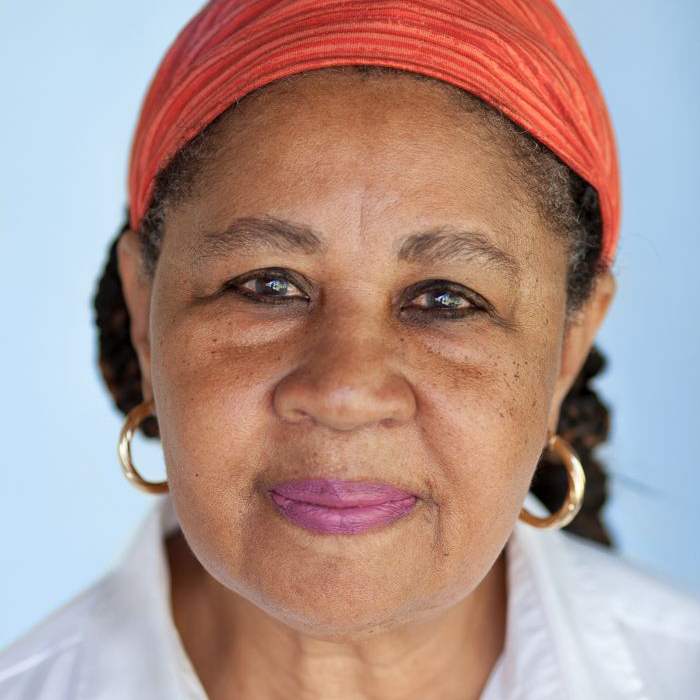Jamaica Kincaid
Writer Jamaica Kincaid is the 2024-25 Avenali Chair in the Humanities.
One of the most celebrated writers of her generation, Jamaica Kincaid offers a clear, illuminating vision of humanity. Written in a deceptively simple and unadorned style, Kincaid’s books are informed by her status as an uprooted subject, born on the Caribbean island of Antigua but living in North America. Kincaid deals with such core human themes as coming-of-age, the necessity of separation from parents, and the forging of personal identity.
After leaving Antigua for New York to work as an au pair, Kincaid studied photography at the New York School for Social Research and attended Franconia College in New Hampshire. A staff writer at the New Yorker from 1974 to 1996, she published her first book, a collection of pieces for the New Yorker called At the Bottom of the River, in 1983. Her first novel, Annie John, the coming-of-age story of a willful ten-year-old growing up on Antigua, followed in 1985. With thirteen translations, it is estimated to be the most translated book by an Antiguan author. Further novels include Lucy, the story of a teenage girl from the West Indies who comes to North America to work as an au pair for a wealthy family; The Autobiography of My Mother, a novel set on the island of Dominica and told by a 70-year-old woman looking back on her life; and Mr. Potter, which follows the life of an illiterate taxi chauffeur.
A member of the American Academy of Arts and Letters, Kincaid is the 2022 recipient of the Hadada Award for lifetime achievement from the Paris Review. She teaches in the English, African and African-American Studies departments at Harvard University and lives in Vermont.
For the Avenali Lecture, Kincaid is in conversation with Stephen Best, Rachael Anderson Stageberg Professor of English, director of the Townsend Center, and president of the Consortium of Humanities Centers and Institutes. A scholar of American and African American literature and culture, he is the author of None Like Us: Blackness, Belonging, Aesthetic Life and The Fugitive's Properties: Law and the Poetics of Possession.
